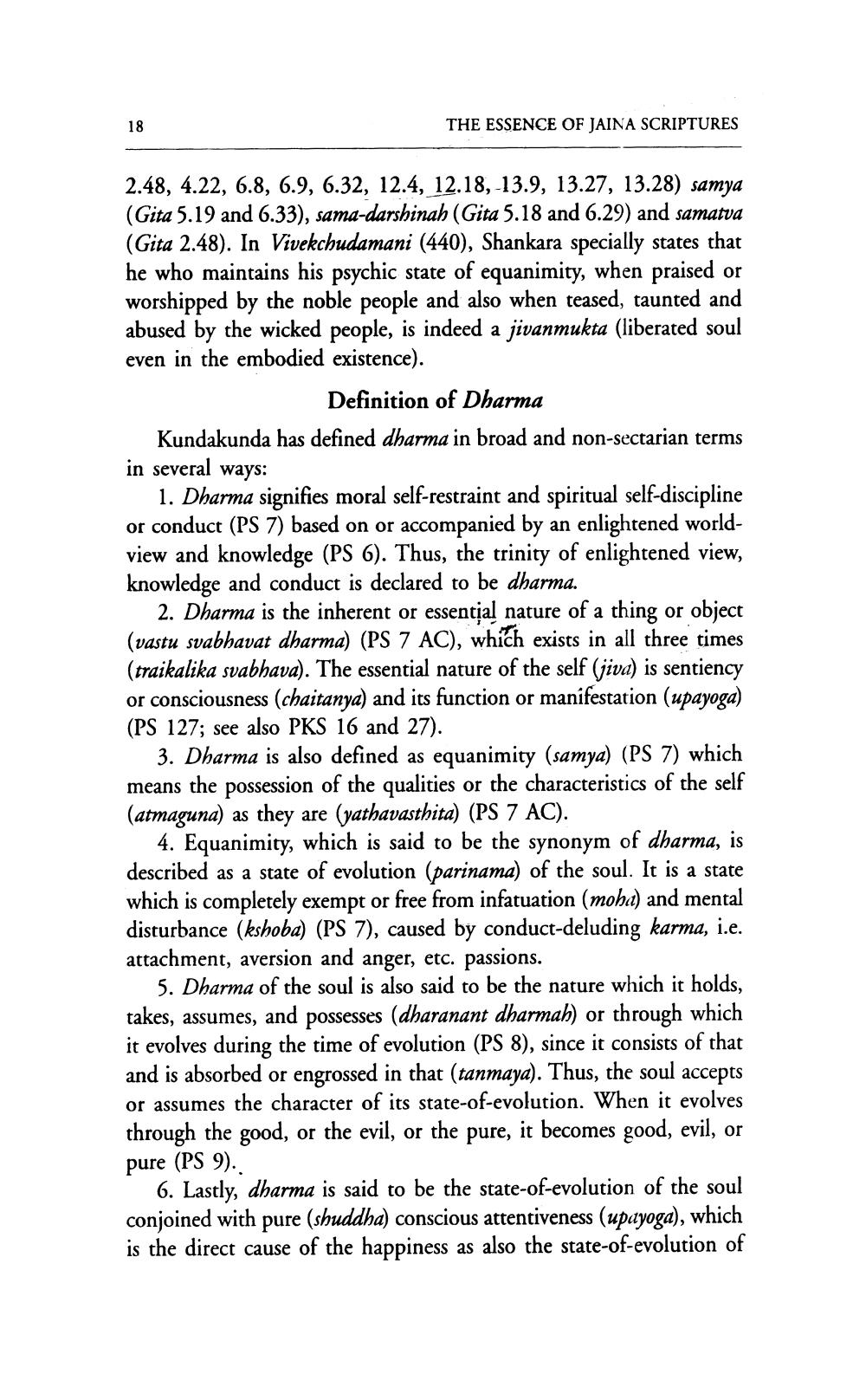________________
THE ESSENCE OF JAINA SCRIPTURES
2.48, 4.22, 6.8, 6.9, 6.32, 12.4, 12.18,-13.9, 13.27, 13.28) samya (Gita 5.19 and 6.33), sama-darshinah (Gita 5.18 and 6.29) and samatva (Gita 2.48). In Vivekchudamani (440), Shankara specially states that he who maintains his psychic state of equanimity, when praised or worshipped by the noble people and also when teased, taunted and abused by the wicked people, is indeed a jivanmukta (liberated soul even in the embodied existence).
Definition of Dharma Kundakunda has defined dharma in broad and non-sectarian terms in several ways:
1. Dharma signifies moral self-restraint and spiritual self-discipline or conduct (PS 7) based on or accompanied by an enlightened worldview and knowledge (PS 6). Thus, the trinity of enlightened view, knowledge and conduct is declared to be dharma.
2. Dharma is the inherent or essential nature of a thing or object (vastu svabhavat dharma) (PS 7 AC), which exists in all three times (traikalika svabhava). The essential nature of the self (jiva) is sentiency or consciousness (chaitanya) and its function or manifestation (upayoga) (PS 127; see also PKS 16 and 27).
3. Dharma is also defined as equanimity (samya) (PS 7) which means the possession of the qualities or the characteristics of the self (atmaguna) as they are (yathavasthita) (PS 7 AC).
4. Equanimity, which is said to be the synonym of dharma, is described as a state of evolution (parinama) of the soul. It is a state which is completely exempt or free from infatuation (moha) and mental disturbance (kshoba) (PS 7), caused by conduct-deluding karma, i.e. attachment, aversion and anger, etc. passions.
5. Dharma of the soul is also said to be the nature which it holds, takes, assumes, and possesses (dharanant dharmah) or through which it evolves during the time of evolution (PS 8), since it consists of that and is absorbed or engrossed in that (tanmaya). Thus, the soul accepts or assumes the character of its state-of-evolution. When it evolves through the good, or the evil, or the pure, it becomes good, evil, or pure (PS 9).
6. Lastly, dharma is said to be the state-of-evolution of the soul conjoined with pure (shuddha) conscious attentiveness (upayoga), which is the direct cause of the happiness as also the state-of-evolution of




